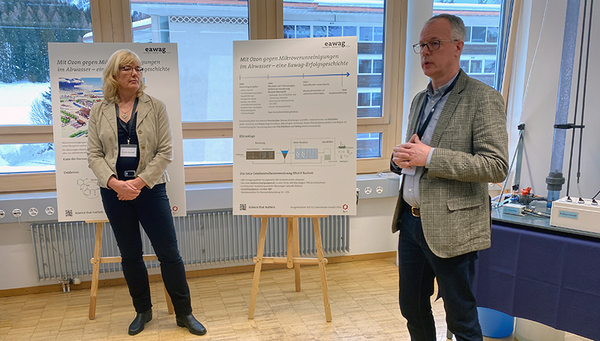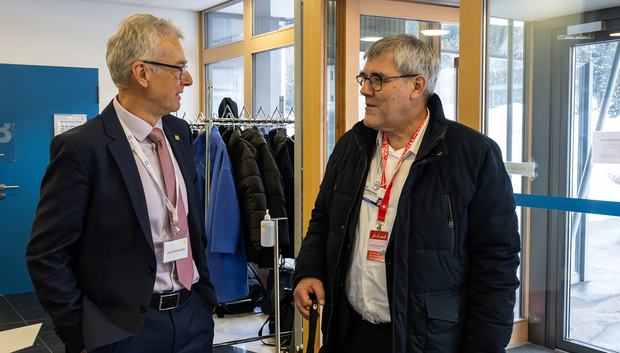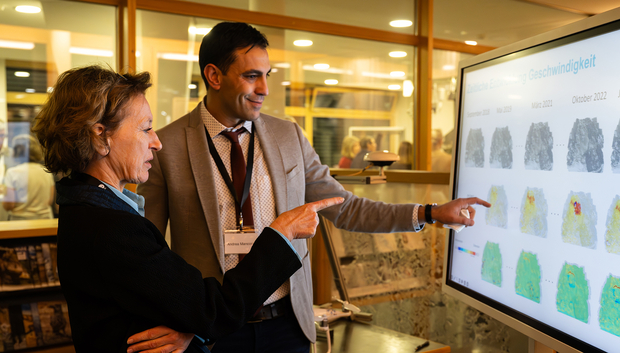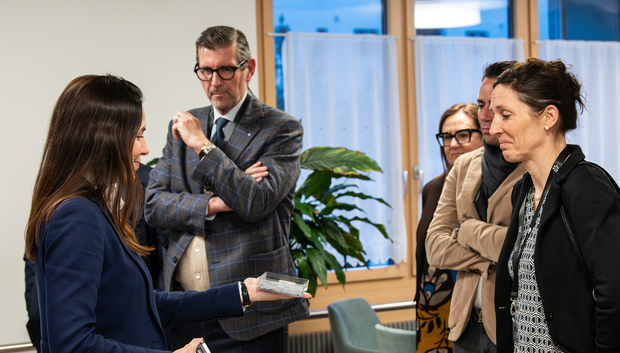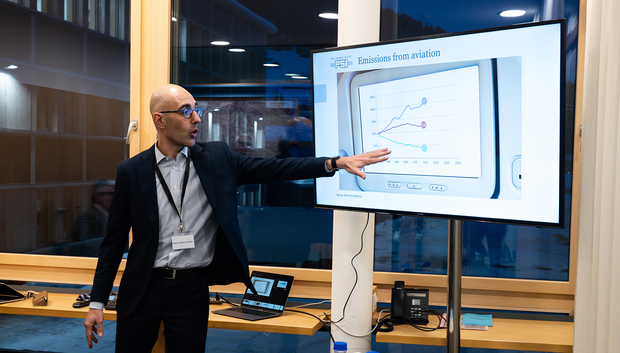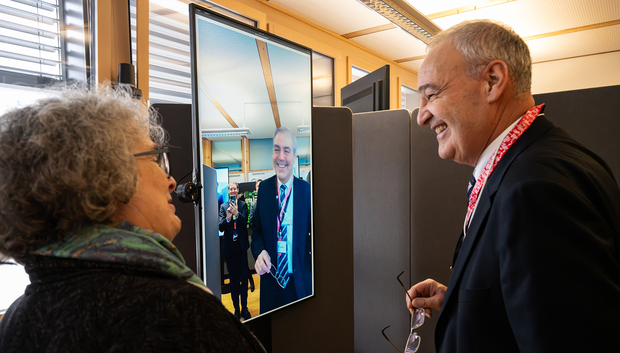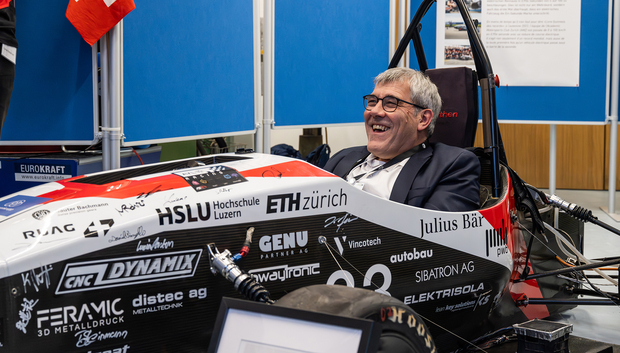News Detail
Eawag presents one of its success stories on the sidelines of the WEF 2024
January 18, 2024 |
The guests, who were invited by the ETH Domain to the WSL Institute for Snow and Avalanche Research SLF in Davos, included Federal Councillor Guy Parmelin, President of the National Council Eric Nussbaumer, State Secretary Martina Hirayama, as well as government councillors from several cantons and many rectors of Swiss universities. In his welcome address host and head of the Institute Jürg Schweizer was delighted at the interest the event attracted: "It's wonderful to be able to showcase here, at the ETH Domain's highest-altitude research institute, what the Domain's researchers are achieving, both for the scientific community and for society."
Afterwards, researchers from ETH Zurich and the Swiss Federal Institute of Technology Lausanne (EPFL) as well as the Paul Scherrer Institute (PSI), the Swiss Federal Institute for Forest, Snow and Landscape Research (WSL), the Swiss Federal Laboratories for Materials Science and Technology (Empa) and the Swiss Federal Institute of Aquatic Science and Technology (Eawag), which together form the ETH Domain, provided insights into their work.
On behalf of the aquatic research institute Eawag, Christa McArdell from the Environmental Chemistry department and Marc Böhler from the Process Engineering department presented how Eawag research, in close cooperation with authorities and practitioners, has paved the way for the current expansion of many Swiss wastewater treatment plants with an additional purification stage for the removal of micropollutants with ozone. This success story began almost 25 years ago with interdisciplinary research into the basic principles. Once the researchers had shown that the substances originating from medicines, household chemicals and body care products, among other things, could be successfully eliminated from wastewater using ozonation, pilot tests were carried out at individual wastewater treatment plants. In 2016, the legal basis was finally created for the implementation of an additional treatment stage in selected Swiss wastewater treatment plants, which is now also being monitored by Eawag researchers and is gradually reducing the pollution of ecosystems and water resources with micropollutants.
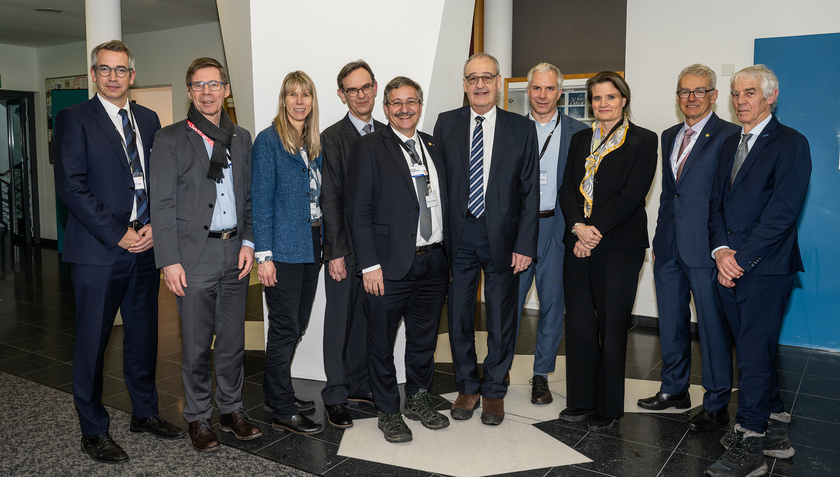
It's important to demonstrate to political decision-makers that innovations are a force driving forward not only the economy but also society", Christoph Hegg, Acting Director of WSL, explained. He referred to cases such as the rockslide in the village of Brienz in the Swiss canton of Grisons, where ETH Domain researchers have supported the public authorities with the latest findings.
The fact that the scientists look beyond their own backyard is also crucial. "International collaborations with researchers around the world, from which Switzerland also benefits, are a pillar of our success," said Michael Hengartner, President of the ETH Board.
Cover picture: Eawag researchers Christa McArdell and Marc Böhler explain how ozone removes micropollutants in wastewater (Photo: Eawag, Claudia Carle).

